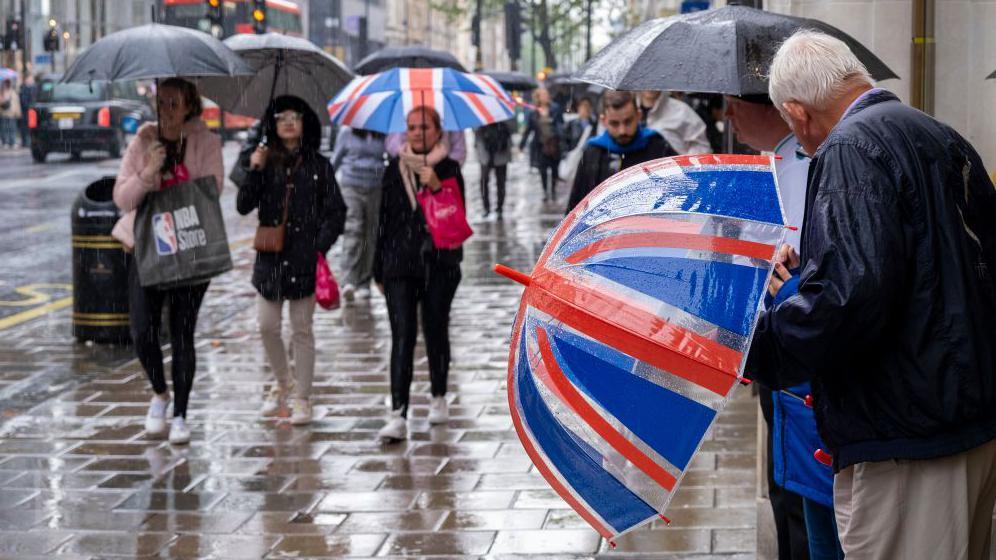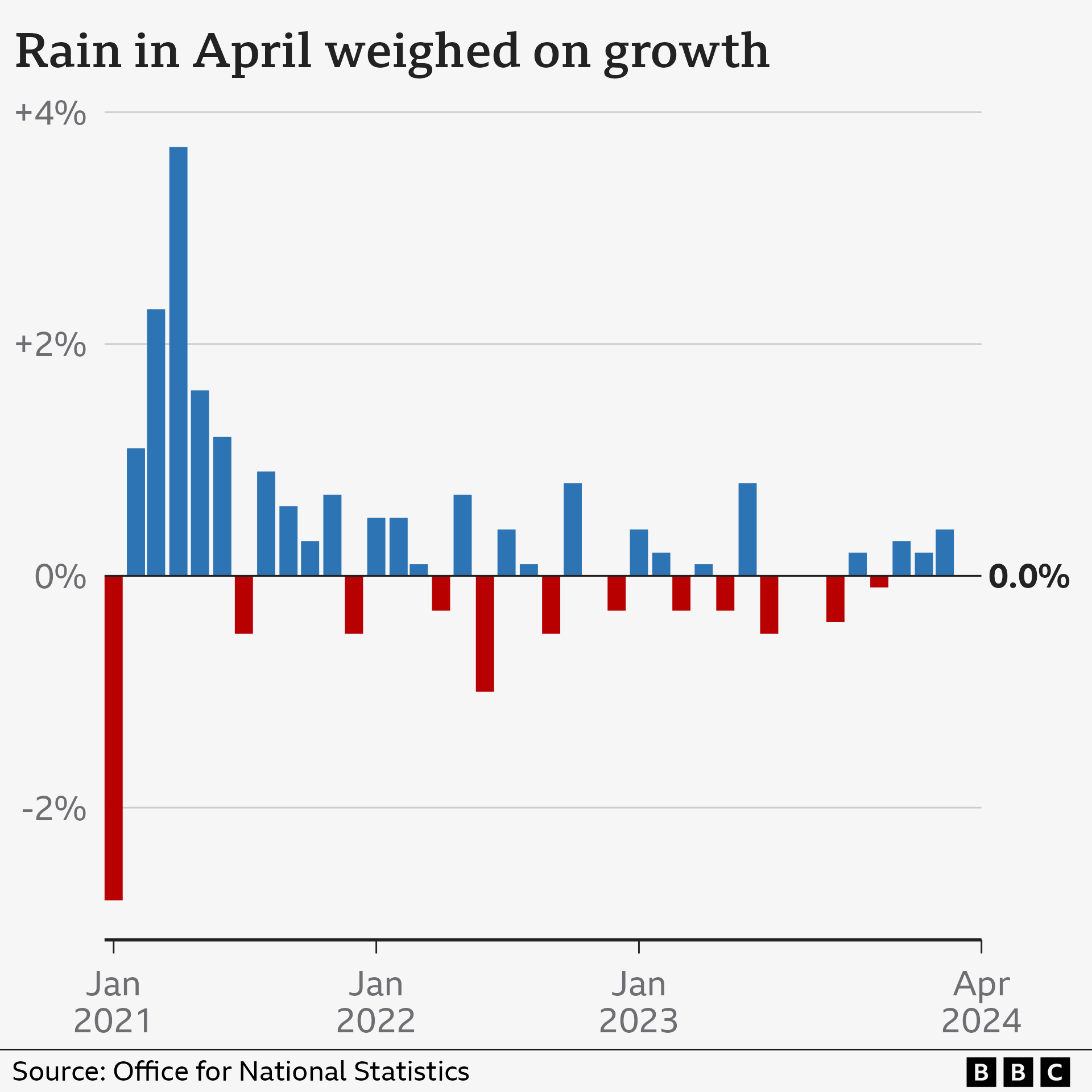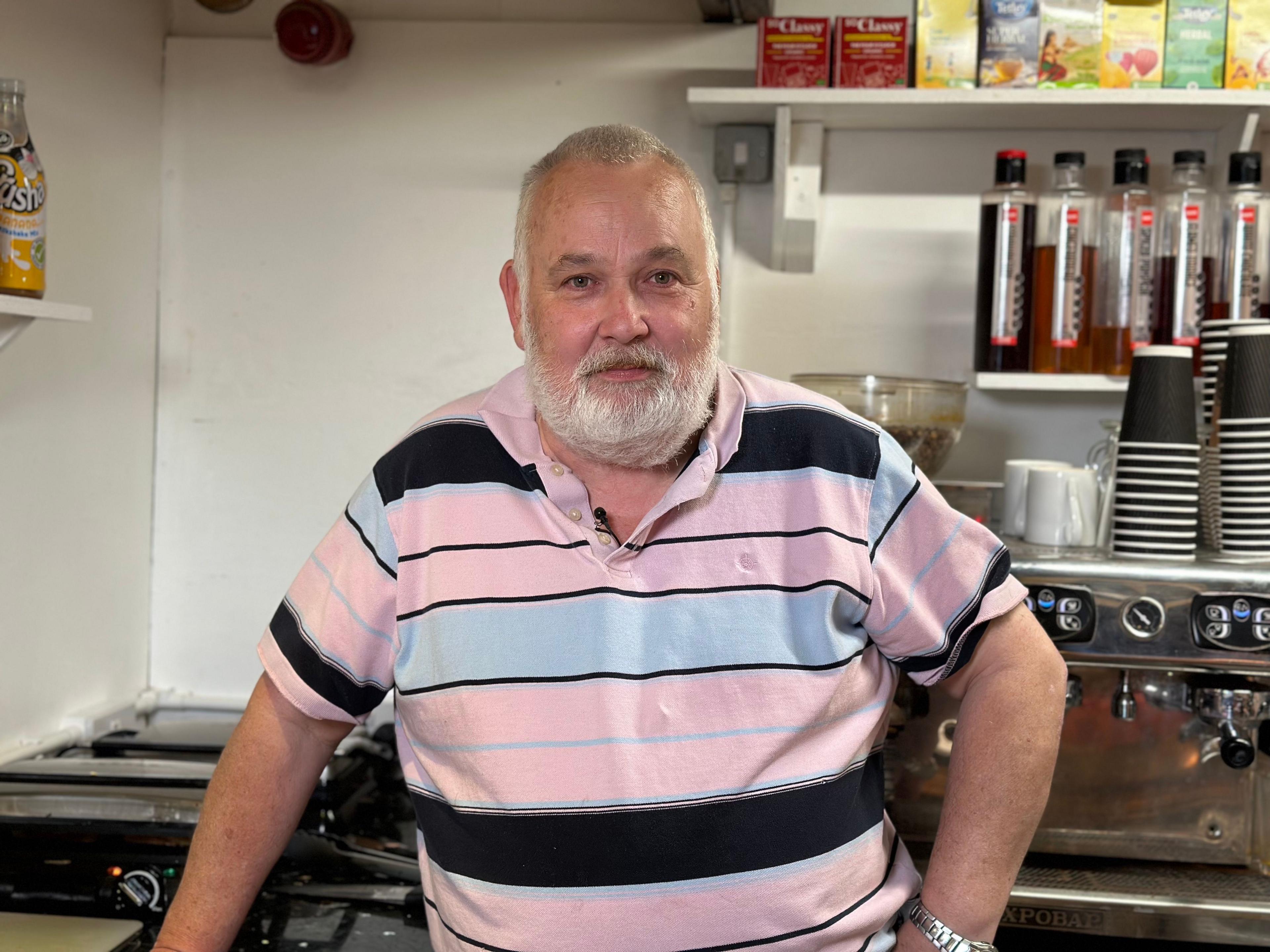UK economy fails to grow during wet April

- Published
The UK economy failed to grow in April after particularly wet weather put off shoppers and slowed down construction.
The official data is what most economists had expected and comes after the fastest growth in two years from January to March, ending the recession from the final half of last year.
The economy is a key battleground in the run-up to the general election on 4 July, with the main parties debating whether the latest numbers point to a continued recovery or stagnation.
The Conservatives argue they show the economy has "turned a corner", while Labour say they "expose the damage done".
The Office for National Statistics (ONS) figures show spending on services, which includes everything from hairdressers to hospitality, grew for the fourth month in a row.
However, this was off-set by falls in production and in the construction industry.

The UK's gross domestic product (GDP), which measures the value of goods and services produced in a country over time, had grown 0.4% in March.
Some parts of the services industry performed better than others.
The information, communication, and scientific sector grew the most, while shop trade fell.
The ONS said some retail businesses told them their output was dented because of the wetter weather, with rainfall for the month well above the long-term average.
However, it added that it was "difficult to quantify the exact impact" of the rainfall.
Output in services for consumers, many of whom are still struggling to cope with the steep rises in the cost of living, fell by 0.7%.
Economists do also warn against placing too much weight on shifts in economic activity over one month because they can be affected by factors like the weather or the timing of the Easter holidays.
Over the three months to April, the economy grew, up by 0.7% from February to April.
The Bank of England will look at the figures alongside a range of others next Thursday when it meets to decide what to do about the interest rate.
Most economists do not believe Wednesday's update will sway the decision much though, as it was broadly in line with expectations.
Many people are struggling not only with higher energy and food bills, but with higher mortgage payments as interest rates have gone up, which the central bank has increased in a bid to tackle price rises.

Coffee shop owner Mark Breen says his business is 'surviving'
One person who has seen the impact of price rises first-hand is Mark Breen, who runs the Old Kent Roastery coffee shop in Margate.
Despite his own costs going up, he has not increased his prices in years because he is worried about scaring away customers.
"We get some people, especially in the winter, they come in and have one coffee and sit here all day. It’s the way of life at the moment, people can’t afford to buy things.
"I’m lucky, I’ve got a business. We’re surviving but a lot of people are not.”
The latest data comes during the third week of a campaigning period where promises around boosting the economy have played a key part.
Chancellor Jeremy Hunt said the data showed the economy "is turning a corner".
"Under the Conservatives, we can keep the economy growing with our clear plan to cut taxes on work, homes and pensions," he added.
However, Labour’s Shadow Chancellor Rachel Reeves focused on the flat reading seen in April, saying that: "These figures expose the damage done after fourteen years of Conservative chaos."
Liberal Democrat Treasury spokesperson Sarah Olney said: "As Rishi Sunak's time as prime minister peters out, so does the UK's economic growth."
Economists had mixed views on what the latest figures mean. Some said it was "positive", while others said it was "underwhelming".
AJ Bell's head of financial analysis Danni Hewson said that "no growth is better than negative growth", but described the three-month fall in construction as "worrying".
"There’s little surprise that so much focus has been placed on housebuilding by political parties," she added.